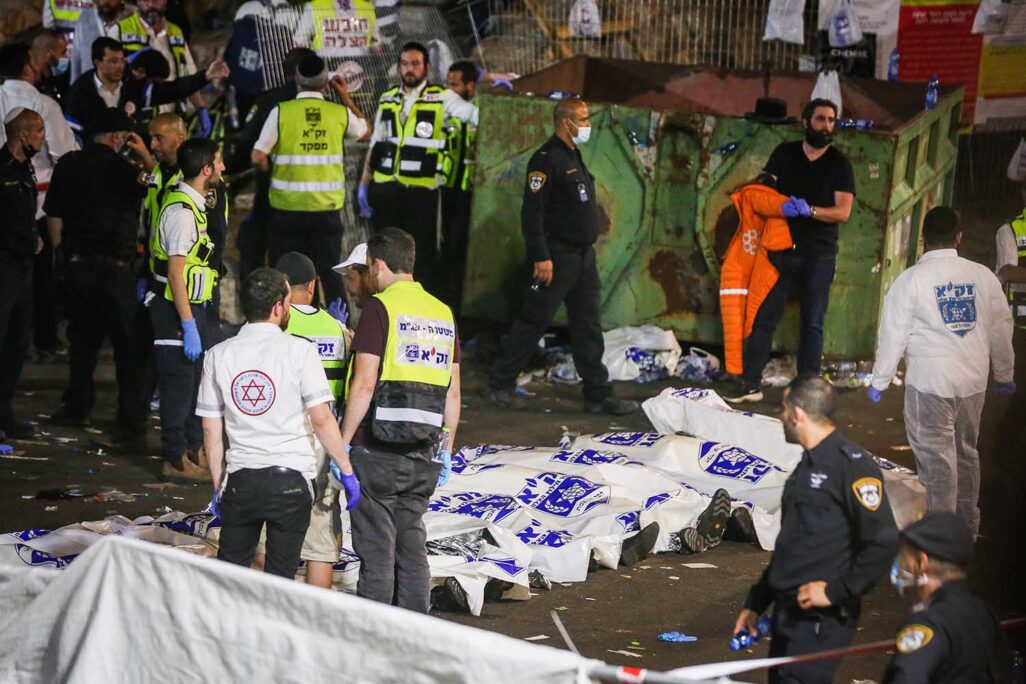
A national day of mourning has been announced in Israel on Sunday, May 2, following the death of 45 people in a stampede at Lag BaOmer celebrations at Mount Meron last Thursday night. 150 people were injured in the crush, 23 of whom are still considered in critical condition.
The event, which is the largest civilian disaster since the founding of the state, occurred as people were exiting one of the severely crowded festivities held to mark the holiday. The events, widely known as “hillula,” are attended annually by the ultra-Orthodox communities to pay tribute to the ancient rabbi Shimon Bar Yochai, or the Rashbi.
Medical authorities completed the official process of identifying the bodies over the weekend as many funerals were held. Ultra-Orthodox communities opened up hotlines to offer mental and emotional support for those involved in or affected by the tragedy.
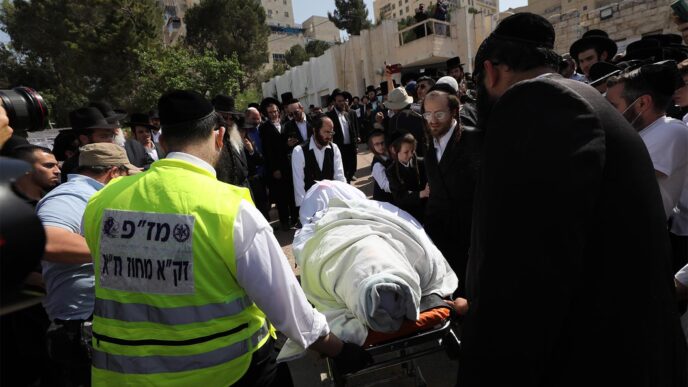
Acts of solidarity with the victims were widespread, with members of local Druze, Bedouin and Arab communities offering kosher food and water to thousands of people being evacuated from Meron the morning after the incident. On Friday, some offered to host those who might otherwise not have made it home on time for Shabbat.
Private businesses also offered food and water free of charge to those fleeing the scene of the tragedy. In addition, Ultra-Orthodox communities arranged for food to be delivered to families waiting at the hospital, or for an official identification of their relatives’ bodies. In several large cities, long lines formed at blood donation centers, some waiting over an hour to donate. Photos of missing people were shared on social media platforms in an attempt to help the rescue teams.
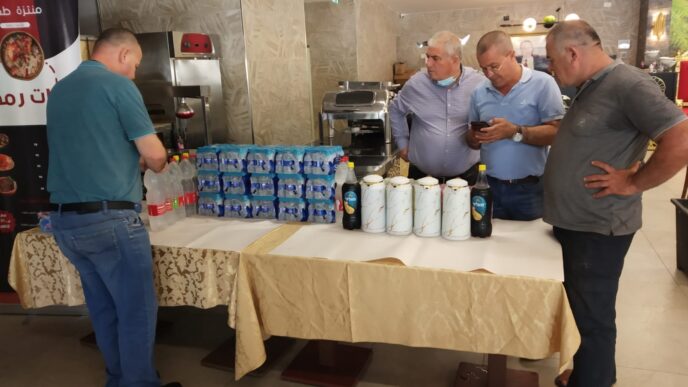
In the hours after the accident, growing evidence indicates that the writing was on the wall. Many voices spoke up before the festivities, warning of dangerous overcrowding, as well as the potential for the event to become a coronavirus superspreader event. It was the largest public gathering in Israel since the start of the pandemic, with over 100,000 attendees.
In the days following the tragedy, finger-pointing began between the police, the Ministry of Religious Services, and the Ministry of the Interior, who are all partially responsible for the Lag BaOmer event, with no one specific authority taking responsibility for the entire event. Existing friction between ultra-Orthodox institutions struggling over control of the prestigious event created further uncertainties as to who was responsible.
Ze’ev Dibbensk, a former official in the Ministry of Labor who dealt with safety issues, told Davar that the problem goes much further than the recent disaster.

“It is easiest to blame the police, but they simply don’t have enough trained manpower to handle things like this,” he said. “In the end, it comes down to the fact that the government never appointed anyone to be in charge of safety issues in places like this, and the police is the only body left in charge.”
Dibbensk states that the government did decide to create a governmental institution in charge of regulations and safety issues in public events, but the Ministry of Finance refused to fund the project.
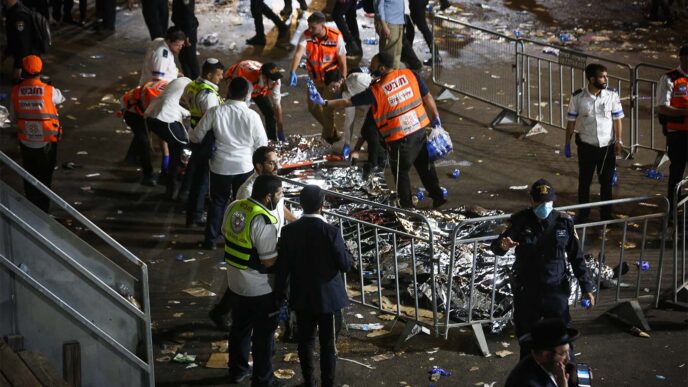
The state comptroller had previously warned against the unsatisfactory state of infrastructure at the Meron, and against the fact that no government official was in charge of safety measures during the events. In his 2008 report, he wrote that the Mount Meron religious site is not equipped to host the hundreds of thousands who make the annual pilgrimage, and that “the current state of affairs must be halted.” The report also criticized the low level of regulation over the event.
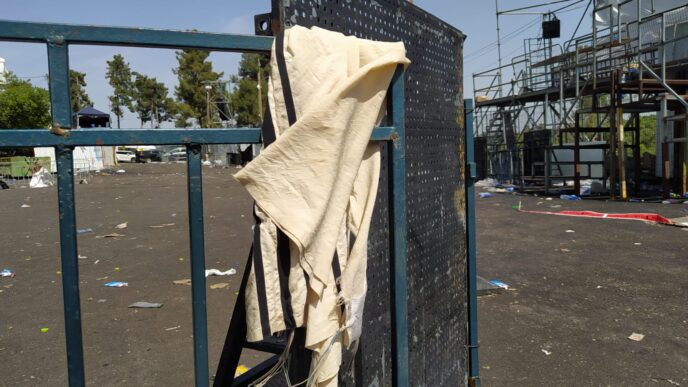
Many organizations have warned of safety issues at the Meron in recent years. In a tweet from 2018, ultra-Orthodox journalist Arieh Ehrlich wrote that the exit where the stampede occurred “creates a bottleneck of terrible crowding, up to the point of actual danger. The event must be stopped until the exit is improved.”
Ultra-Orthodox journalist Israel Frei tweeted that the power struggles between the police and the leaders of Haredi communities are what allow vacuums of responsibility that lead to tragedies of this kind. “Sometimes our aggression hurts non-religious people, and other times, it kills us,” he concluded.
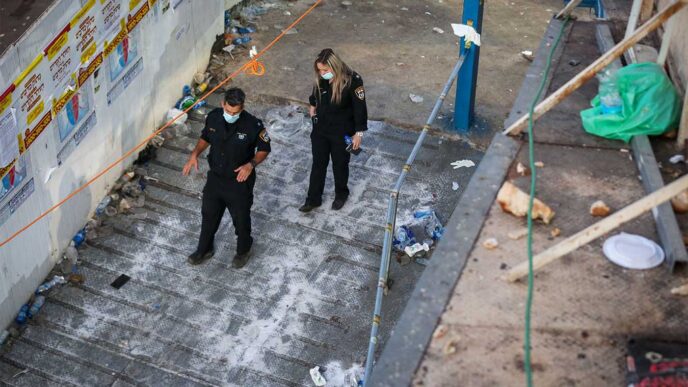
The Ministry of Health had warned against allowing the event to occur due to coronavirus concerns, and asked to limit the number of participants. Minister of Interior Aryeh Deri fought against the Ministry of Health and succeeded in allowing unlimited access to the mountaintop.
Ongoing investigations will continue to locate responsibility for the tragedy and reevaluate the way the festivitie were conducted.






